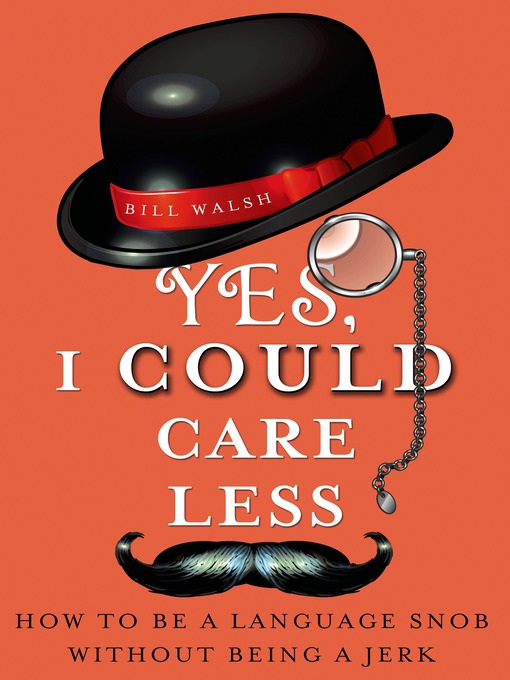
Yes, I Could Care Less
How to Be a Language Snob Without Being a Jerk
کتاب های مرتبط
- اطلاعات
- نقد و بررسی
- دیدگاه کاربران
نقد و بررسی

June 24, 2013
Walsh (The Elephants of Style) uses his years as a copy editor for The Washington Post to deliver an irreverent, meandering tour through the vagaries of the English language. The self-proclaimed "word nerd" waxes philosophical on a wide variety of subjectsâfrom the proper uses of punctuation, to misused phrases like "could care less" and "literally", to inaccurate plurals and possessives. Unfortunately, he has so much fun sharing his opinions that he often moves on to the next quibble before finishing his point. His Curmudgeon's Stylebook introduces readers to brief opinions on the proper way to use "anniversary", "coffee shop", compound nouns, ramen noodles, and much more. As Walsh explains, this is about "what I care about,...what I don't care about, and why." Of course, he also admits to being "a big fat elitist" so readers can take his words with a grain of salt. While it's entertaining to see a master at work, Walsh undermines his own efforts to share his expertise with forced casualness, offhanded humor, and lack of focus. Those looking for a useful reference manual or a pure work of comedy will likely be disappointed. Agent: Janet Rosen, Sheree Bykofsky Associates.

May 1, 2013
A copy editor at the Washington Post returns with his third rant-cum-English usage manual (Lapsing into a Comma, 2000, etc.). The volume sometimes has the appearance of a cut-and-paste job: Recto pages feature headers selected from the author's tweets; occasional text boxes offer information about compound words, hyphenation, famous movie lines that people commonly misquote (Bogart said only, "Play it, Sam") and the meanings of abbreviations (GAO is now the Government Accountability Office). Some chapters are principally argument and/or exposition (Walsh goes after Strunk and White); others are lists of usage issues and the author's views about them. The author's tone and diction vary from serious to silly. "The en [dash]," he writes in the latter way, "is a prissy punctuation mark that I have little use for." Walsh does have some serious points to make. Writers should know the conventions of written English and know their audiences. Other folks still do judge our commas, our capital letters, our use of lie and lay. A little grammar helps, too. Knowing the difference between an essential and a nonessential clause, knowing when something is in apposition, when it is not--it's hard to use commas correctly when you don't know the grammatical structures you're employing. He deals with many common issues, and he takes on the double possessive, the use of hopefully (lost cause, he believes), comma splices, disinterested and uninterested, who and whom (he is softening on this one), subject-verb agreement with collective nouns, and the expressions graduated high school and going to prom. A frisky reminder that usage issues are part convention, part passion.
COPYRIGHT(2013) Kirkus Reviews, ALL RIGHTS RESERVED.

























دیدگاه کاربران